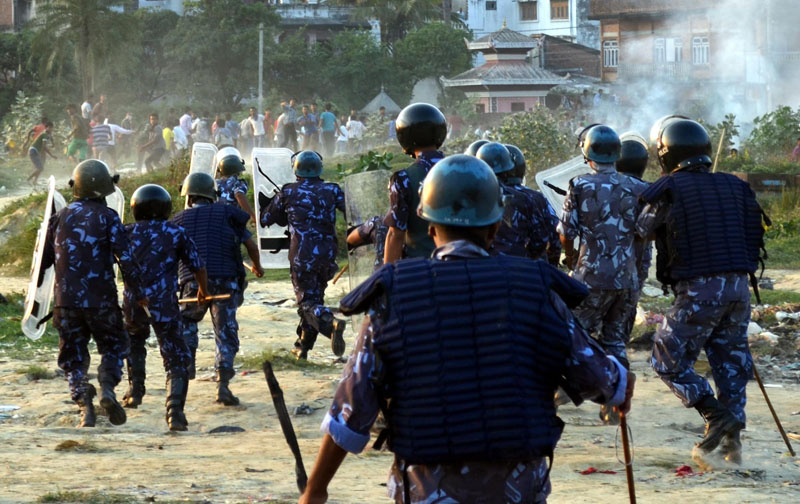US report presents bleak picture of Nepal human rights
KATHMANDU: An annual report prepared by the United States Department of State presented a bleak picture of human rights situation in Nepal.
The Country Report on Human Rights Practices for 2015 observed that there were serious problems in Nepal regarding implementation of principles of human rights.
"The most significant human rights problems included the alleged use of excessive force by security personnel in controlling protests related to the finalisation of the new constitution, especially in the Tarai region," the executive summary of the report read.
"The continued absence for much of the year of a permanent constitution and the further delay of functioning transitional justice mechanisms exacerbated the lack of accountability for human rights and humanitarian law violations during the country’s 10-year insurgency," it added.
Likewise, it pointed out that discrimination against women was a persistent problem, and the new Constitution also contained provisions that discriminate by gender.
"Other human rights problems included poor prison and detention centre conditions and police mistreatment of detainees. The courts remained vulnerable to political pressure, bribery, and intimidation. There were problems of harassment of media and press self-censorship. The government sometimes restricted freedom of assembly, notably in areas where violent protests against the constitutional process were taking place from August through the end of the year. The government limited freedoms for refugees, particularly for resident Tibetans," it explained.
"Corruption remained a problem at all levels of government. Citizenship laws and regulations that discriminate by gender contributed to statelessness. Early and forced marriage, and rape and domestic violence against women, including dowry-related deaths, remained serious problems. Violence against children, including reported abuse at orphanages, continued and was rarely prosecuted. Sex trafficking of adults and minors remained a significant problem. Discrimination against persons with disabilities, lower-caste individuals, and some ethnic groups continued, as did some harassment against gender and sexual minorities. There were some restrictions on worker rights. The government made little progress in combatting forced and bonded labour, which persisted despite laws banning the practice, and there was moderate progress in efforts to eliminate child labour."
The report, however, maintained that the government routinely investigated and held officials and security forces accused of committing ongoing violations of the law accountable.






